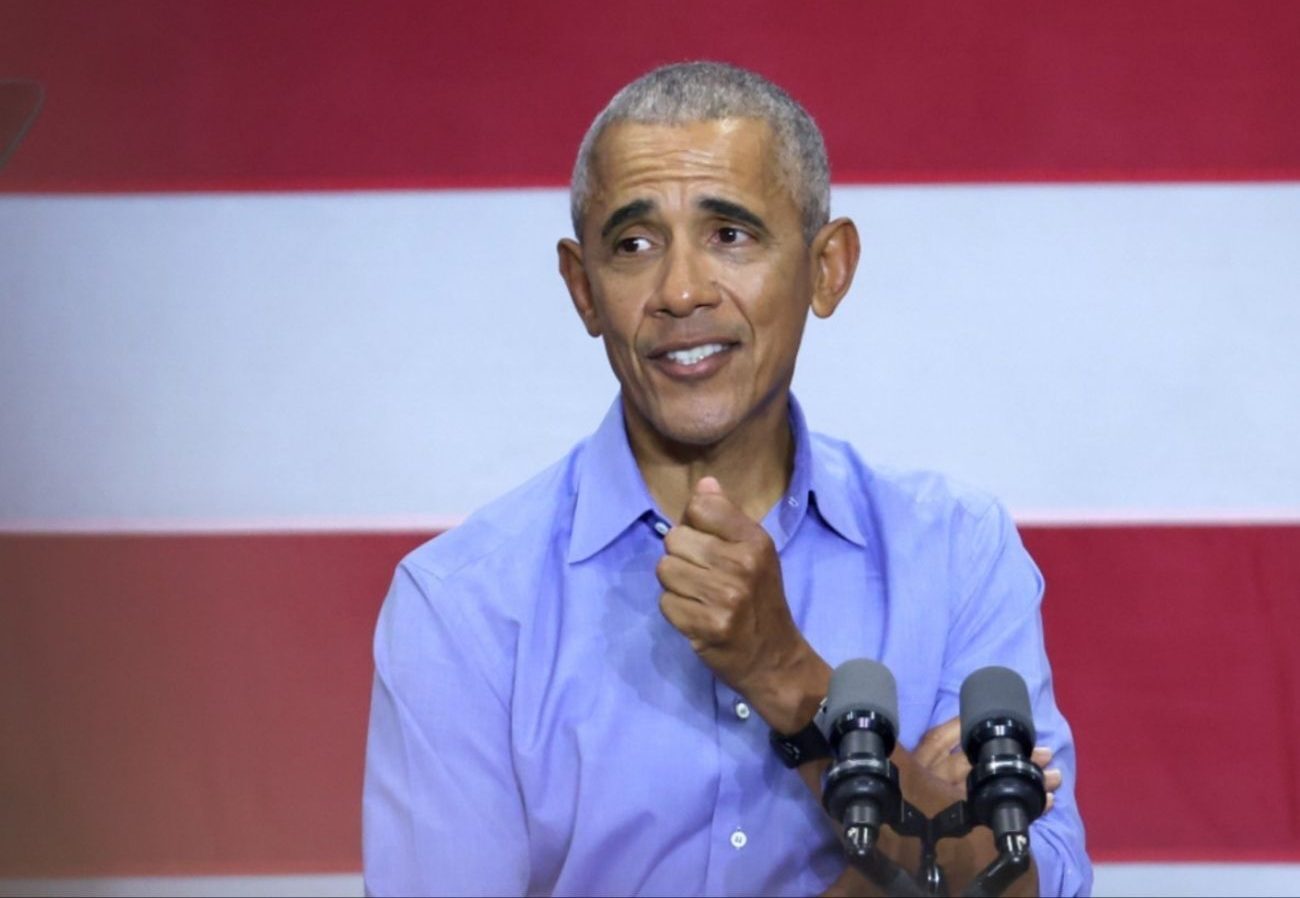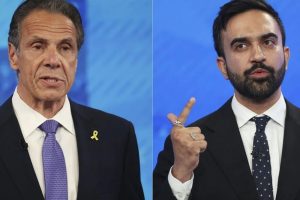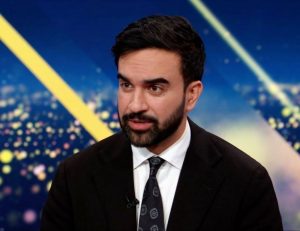Former President’s Move Adds Drama to Tight Races
In the final hours before polls closed in two of the nation’s most closely watched contests, former President Barack Obama quietly re-entered the political fray — a move that added new tension to already high-stakes elections in New York City and New Jersey.
Obama’s late involvement came as Democratic nominee Zohran Mamdani, a self-described democratic socialist, sought to steady his campaign after a weekend that saw wavering support from moderate Democrats and cautious distance from the party’s establishment.
“I appreciated the call with President Obama and his support for the movement that we have created,” Mamdani said Monday at City Hall Park. “I appreciated his time, and I appreciate this movement for putting us on the brink of delivering a new city.”
Despite that measured tone, Obama notably stopped short of issuing a formal endorsement for Mamdani, instead spending the weekend campaigning in neighboring New Jersey on behalf of gubernatorial candidate Mikie Sherrill.
A Quiet Call, and Questions of Party Unity
While the former president and Mamdani reportedly spoke by phone, details of their conversation remain undisclosed. The Mamdani campaign suggested that Obama’s neutrality was consistent with his past approach — though the former president has endorsed candidates in city races before, including Bill de Blasio in 2013.
The lack of a public appearance underscored a persistent rift within the Democratic Party, where Mamdani’s progressive wing continues to clash with moderates wary of his platform. It took months for Governor Kathy Hochul and House Minority Leader Hakeem Jeffries to offer their endorsements, both doing so only after the Democratic primary ended.
Even then, Jeffries hinted at his reservations. Over the weekend, he remarked that Mamdani’s “brand of far-left politics” was not the long-term future of the Democratic Party — a statement that captured the unease among centrist leaders.
Cuomo, Trump, and a Campaign Flashpoint
Mamdani attempted to frame his independent rival, former Governor Andrew Cuomo, as “Donald Trump’s puppet” during a Monday press event — a claim that drew scrutiny.
Trump has not formally endorsed anyone in the race, though he told “60 Minutes” on Sunday that, if pressed, he would “pick the bad Democrat over a Communist.”
“I’m not a fan of Cuomo one way or another,” Trump said. “But if it’s between a bad Democrat and a Communist, I’m going to pick the bad Democrat all the time.”
Within hours, Mamdani’s campaign distributed a press release condemning what it described as an “endorsement,” even as fact-checkers noted Trump’s comments stopped short of that. Cuomo’s team dismissed the remarks as political theater, calling Mamdani’s framing “desperate and misleading.”
DOJ Sends Election Monitors to Six Counties
In a separate but related development, the Department of Justice announced that it would deploy federal election monitors to polling sites in six jurisdictions across the United States — including counties in New Jersey and California — to oversee Tuesday’s general elections.
The initiative, led by the DOJ’s Civil Rights Division, aims to ensure ballot integrity and compliance with federal voting laws. The Department routinely dispatches monitors to safeguard access to the ballot box and detect potential violations of voting rights statutes.
“Transparency at the polls translates into faith in the electoral process,” said Attorney General Pamela Bondi in a statement. “This Department of Justice is committed to upholding the highest standards of election integrity and will provide the resources necessary to ensure Americans can vote freely and fairly.”
According to the DOJ, monitors will be present in the following counties:
- Passaic County, New Jersey
- Kern County, California
- Riverside County, California
- Fresno County, California
- Orange County, California
- Los Angeles County, California
Assistant Attorney General Harmeet K. Dhillon, who oversees the DOJ’s Civil Rights Division, will coordinate the deployment.
Political Reactions and State Pushback
The announcement drew sharp criticism from some state officials, particularly in California, where Democratic Governor Gavin Newsom accused the DOJ of federal overreach.
“Donald Trump’s puppet DOJ has no business interfering with this election,” Newsom wrote on X. “Sending federal monitors into California polling places is a deliberate attempt to intimidate voters. Californians will decide our future — no one else.”
Federal officials pushed back, saying the monitors were standard practice and not connected to any campaign. Critics of Newsom’s remarks argued that DOJ oversight is a long-standing measure intended to protect voters of all political affiliations.
Broader Implications for Election Confidence
The DOJ emphasized that its initiative was designed to promote transparency and foster communication between local officials and federal observers, ensuring elections proceed smoothly and lawfully.
“Voters should have confidence that their voices will be heard and that the process remains secure,” said Dhillon. “Our role is to ensure compliance with civil rights laws — not to influence outcomes.”
Political analysts say the move highlights growing public concern over election security and partisanship. “This is about perception as much as process,” said election law expert David Kaplan. “If voters believe someone is watching, it can either reassure them or raise alarm, depending on their politics.”
The Final Hours Before the Vote
As polls opened across the country, the dual developments — Obama’s quiet reemergence and the DOJ’s visible presence — underscored the tension and high stakes surrounding the 2025 election cycle.
For Democrats, Obama’s call to Mamdani was both symbolic and strategic: a gesture of unity meant to energize younger voters while tempering anxieties among moderates. For federal officials, the deployment of monitors was a procedural step that nonetheless drew fresh partisan fire.
Both moves reflect a nation on edge heading into another pivotal vote — one where questions of trust, transparency, and party identity are on the ballot as much as any candidate’s name.

Sarah Mitchell is a bestselling novelist recognized for her insightful and emotionally resonant stories that explore the complexities of human relationships. Originally from Denver, Colorado, Sarah grew up in a family of teachers who nurtured her curiosity and love for storytelling. She studied psychology at Stanford University, where she became fascinated by the intricacies of human behavior—an interest that would later shape her writing career. Sarah’s novels are praised for their nuanced characters, intricate plots, and ability to capture the subtle tensions that define love, friendship, and family ties. Her breakthrough novel, The Spaces Between Us, became an instant bestseller, lauded for its honest portrayal of strained family relationships and the fragile bonds that hold people together. Since then, she has published several works that continue to captivate audiences around the world. Outside of her writing career, Sarah is passionate about mental health advocacy and often partners with organizations to promote awareness and support for those struggling with emotional well-being. Her personal life is quieter—she enjoys hiking in the Colorado mountains, practicing yoga, and spending time with close friends. With each new book, Sarah Mitchell cements her reputation as a writer who illuminates the beauty and struggles of human connection.









